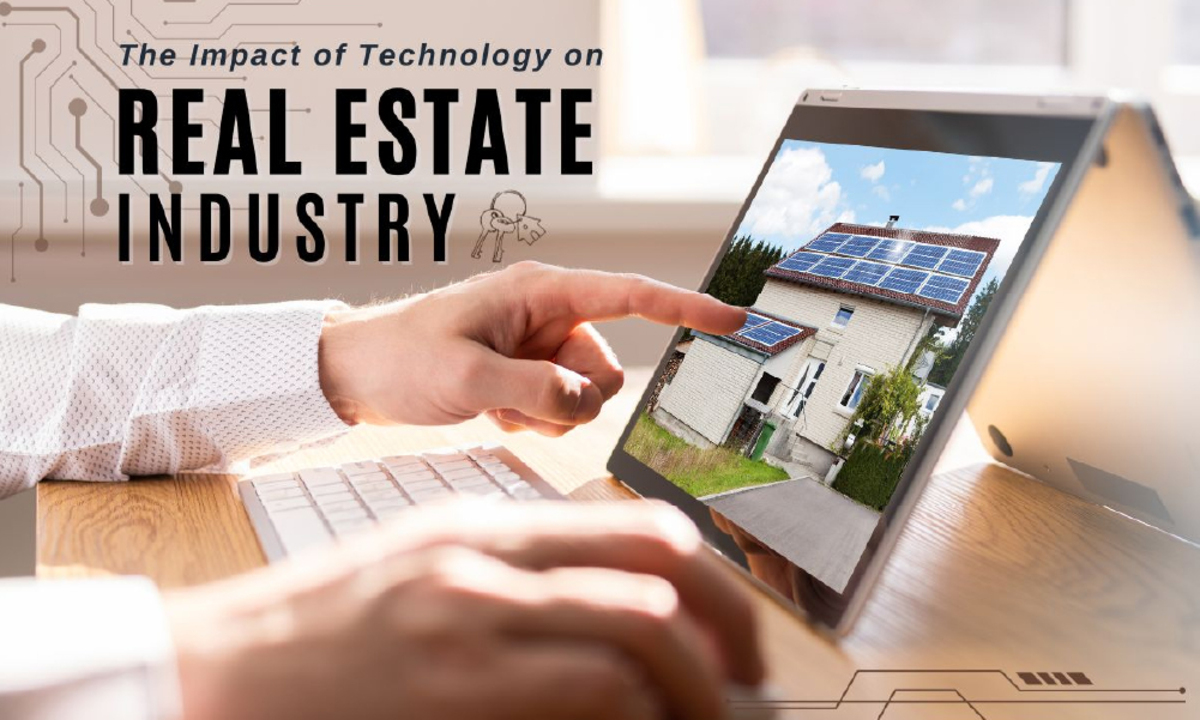In the rapidly evolving landscape of the real estate industry, technological advancements have ushered in an era of unprecedented efficiency, ease, and enhanced client experience. From virtual property viewings to artificial intelligence-driven recommendations, the integration of cutting-edge technologies has revolutionized the way real estate is evaluated, bought, sold, and managed. In this blog post, we will delve into several noteworthy technological advancements that have profoundly influenced the real estate landscape.
Virtual and Augmented Reality (VR/AR) in Property Viewings
Among the notable technological developments reshaping the real estate sector is the adoption of Virtual Reality (VR) and Augmented Reality (AR) in property viewings. This innovation enables potential buyers and investors, interested in luxury apartments or apartments for sale, to explore properties realistically and engagingly without leaving their offices. VR/AR headsets and smartphone apps facilitate immersive property inspections, saving both time and money compared to traditional viewings.
Artificial Intelligence (AI) for Property Search and Recommendations
Artificial Intelligence (AI) has brought about a paradigm shift in how homes are discovered and recommended to potential buyers. AI-driven algorithms analyse vast datasets encompassing customer preferences, geographic context, and property features to deliver customised real estate suggestions. Chatbots and virtual agents, powered by AI, assist customers in their property searches, providing them with quick answers and improving overall decision-making.
Blockchain Applications in Real Estate Transactions
Blockchain technology, renowned for its security and transparency, is making inroads into real estate transactions, including apartments for sale and apartments in Oragadam. By providing an immutable and secure documentation of property ownership and transaction history, blockchain reduces the risk of fraud and instils confidence in consumers. Smart contracts, automated on blockchain systems, streamline contract execution, eliminating the need for intermediaries and enhancing overall efficiency in property transactions.
Internet of Things (IoT) and Smart Homes
The Internet of Things (IoT) has given rise to the concept of smart homes, creating interconnected ecosystems where devices and appliances communicate through the internet. Homeowners can optimize energy consumption, enhance security, and improve comfort through remotely controlled smart home technology. This not only adds value to homes but also serves as a significant selling point for modern homebuyers looking for apartments for sale or apartments in Oragadam. The integration of IoT further positions these properties as technologically advanced and desirable in the real estate market.
Big Data Analytics for Market Trends and Predictive Analysis
Big Data Analytics has transformed how real estate professionals make data-driven decisions. By analysing massive databases, businesses gain insights into market trends, consumer preferences, and investment opportunities. Predictive analytics, based on past market activity, allows investors and developers to anticipate future trends, enabling more informed pricing, marketing, and investment decisions.
Advantages of Technology Integration in Real Estate
The integration of technology into the real estate industry has yielded numerous benefits, reshaping conventional practices and enhancing various facets of the property market. Some key advantages include:
1. Enhanced Efficiency in Property Transactions:
- Digital platforms and internet technologies streamline the buying, selling, and renting processes.
- Quick and convenient online uploads and retrievals of property listings eliminate the need for paper documents.
- Digital documents and e-signatures expedite online closing processes, saving time and resources.
2. Improved Customer Experience and Personalisation:
- Real estate websites, mobile apps, and virtual property tours provide customers with the ability to explore properties remotely.
- AI-powered chatbots and virtual assistants offer immediate answers to customer queries, enhancing the overall experience.
- Personalised property recommendations based on customer preferences foster a more engaging and enjoyable property search.
3. Increased Transparency and Security in Transactions
- Blockchain technology ensures the immutability and traceability of property data, reducing the risk of fraud.
- Smart contracts, enabled by blockchain, automatically execute financial transactions under predetermined conditions, enhancing security.
In conclusion
The impact of technology on the real estate industry is profound, ushering in an era of efficiency, transparency, and improved customer experience. As technological advancements continue to evolve, the real estate sector is poised for further transformation, with benefits extending to both industry professionals and clients alike.
In this dynamic landscape, the integration of cutting-edge technology has become crucial for meeting the expectations of clients searching for luxury apartments, luxury villas, plots, apartments for sale, and any type of property. These advancements position real estate professionals at the forefront. It also gives them a competitive edge in catering to the discerning needs of clients seeking the epitome of modern living in luxury apartments and premium properties for sale.
Frequently Asked Questions (FAQs)
Q: How do Virtual Reality (VR) and Augmented Reality (AR) impact property viewings in the real estate industry?
VR/AR allows potential buyers and investors to explore properties realistically, saving time and money compared to traditional viewings.
Q: How does Artificial Intelligence (AI) enhance property searches and recommendations?
AI-driven algorithms analyse vast datasets to deliver customized real estate suggestions. Chatbots and virtual agents, powered by AI, assist customers in property searches, providing quick answers and improving decision-making.
Q: What role does Blockchain technology play in real estate transactions?
Blockchain ensures security and transparency, reducing fraud risk in property transactions. Smart contracts, automated on blockchain systems, streamline contract execution, enhancing overall efficiency for apartments for sale and other real estate deals.
Q: How does the Internet of Things (IoT) impact the concept of smart homes and their appeal in the real estate market?
IoT creates interconnected ecosystems, optimizing energy consumption and enhancing security and comfort in smart homes. This adds significant value to properties, making them desirable for modern homebuyers looking for apartments for sale or apartments in Oragadam.
Q: What benefits does Big Data Analytics bring to the real estate industry in terms of market trends and predictive analysis?
Big Data Analytics transforms decision-making by providing insights into market trends, consumer preferences, and investment opportunities. Predictive analytics enables investors and developers to anticipate future trends, making more informed pricing, marketing, and investment decisions.

